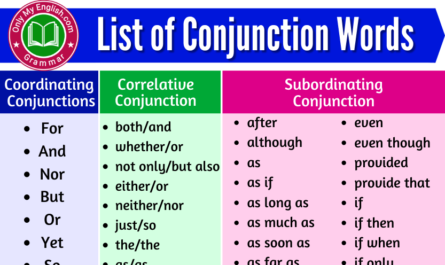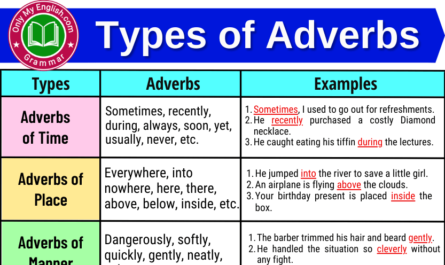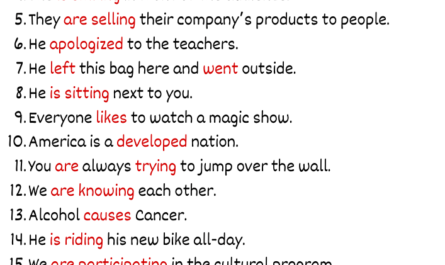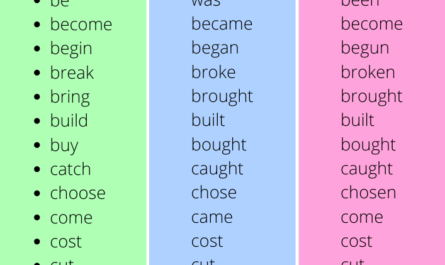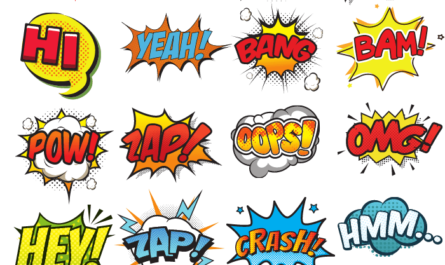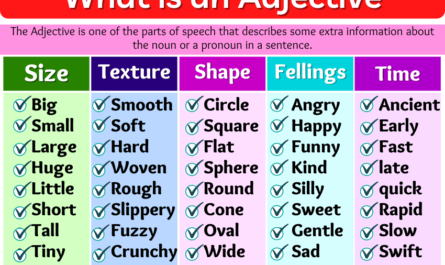What is an Interjection?
An interjection is one of the parts of speech, which is a word that is used to express internal or sudden feelings like joy, sorrow, emotions, excitements in any sentence.
There is no need for any grammatical adjustment with any other word for the interjections in a sentence. It can be used at the beginning of the middle or the end of the sentence wherever it may want to adjust because it is just a feeling, emotion, or joy.
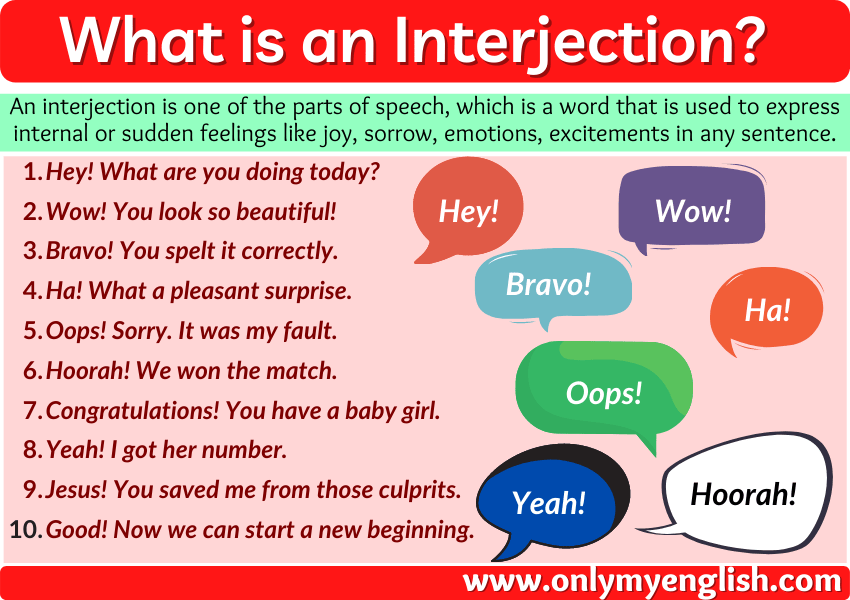
If we want to write something short like a phrase, to express our feeling without going into detail, we can use an interjection in proper punctuation marks.
It does not express any particular emotional attachment, sensitivities, etc.
Sometimes a noun or an adjective can also function as an interjection.
Normally, it starts with a capital letter and an exclamation sign along with it.
It can stand alone in a sentence without the support of any other word. It does not show any relation with the rest of the sentence.
If any other word from part of speech like an adverb, adjective, noun, pronoun is also functioning like an interjection if they come along with an exclamation mark.
- Alas, bravo, hurrah, ouch, hello, ahh, hush, etc. are some interjections.
Interjections are classified into three types with respect to the meaning and use in a sentence,
- A volitive interjection is used as an imperative/direct expression or demand for something to someone. “Shh!= Be Quiet!”
- An emotive interjection is used to show emotion like fear and disgust behaviour.
“Yuck!= Disgust!”
3. A cognitive interjection is used to express feelings related to cognition.
“Wow! = Surprise!”
Based on the way of expressing feelings, interjections are also classified into six types.
- The Interjection of greeting
- The Interjection of joy
- The Interjection of attention
- The Interjection of approval
- The interjection of surprise and
- The interjection of sorrow.
The interjection of Greeting:
The interjection of greeting expresses the emotion of warmth to meet with any person.
Hello!, hi! , hey! , etc.
Examples,
- Hey! What are you doing today?
The interjection of Joy:
The interjection of joy is used to express instantaneous joy and happiness on a certain occasion.
Wow!, Hurrah! Congratulations! Good!, etc.
Examples,
- Wow! You look so beautiful!
The interjection of Attention:
The interjection of attention is used to get someone’s attention towards us.
Listen! Look! Shh! behold! hush! etc.
Examples,
- Hush, Robin!, warned Smith.
The interjection of Approval:
The interjection of approval is used to express approval or any agreement in a sentence.
Bravo! Well done! Brilliant!, etc.
Examples,
- Bravo! You spelt it correctly.
The interjection of surprise:
The interjection of surprise is used to express the feeling of surprise for any incident that has happened.
Oh!, what!, Ah!, Ha!, etc.
Examples,
- Ha! What a pleasant surprise.
The interjection of sorrow:
The interjection for sorrow is used to express the emotion of sadness, that something bad happened in a sentence.
Ah!, Damn!, Alas!, Ouch!, oops! etc.
Examples,
- Oops! Sorry. It was my fault.
